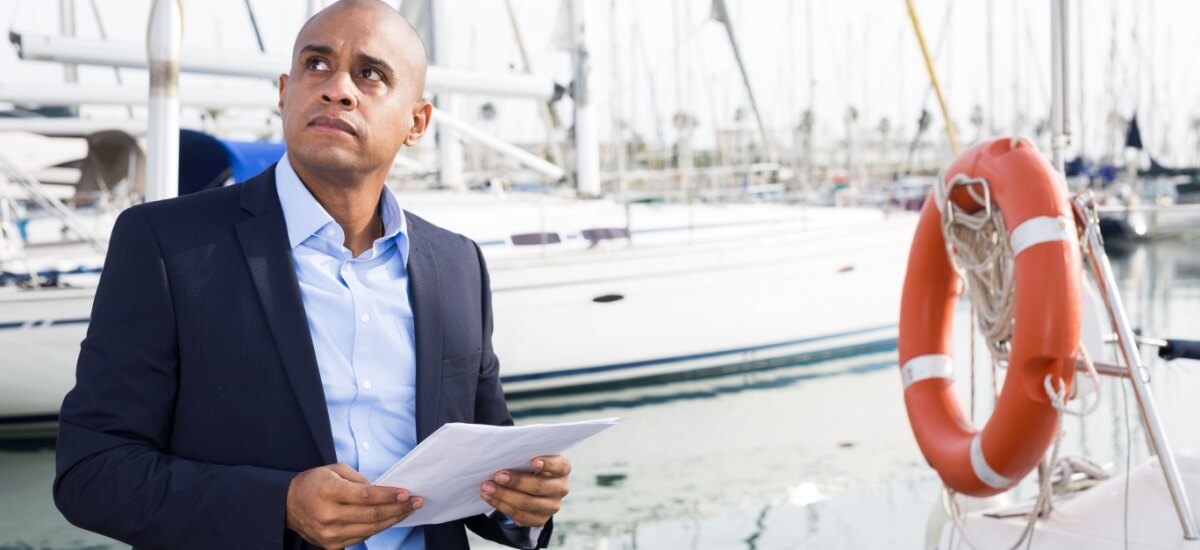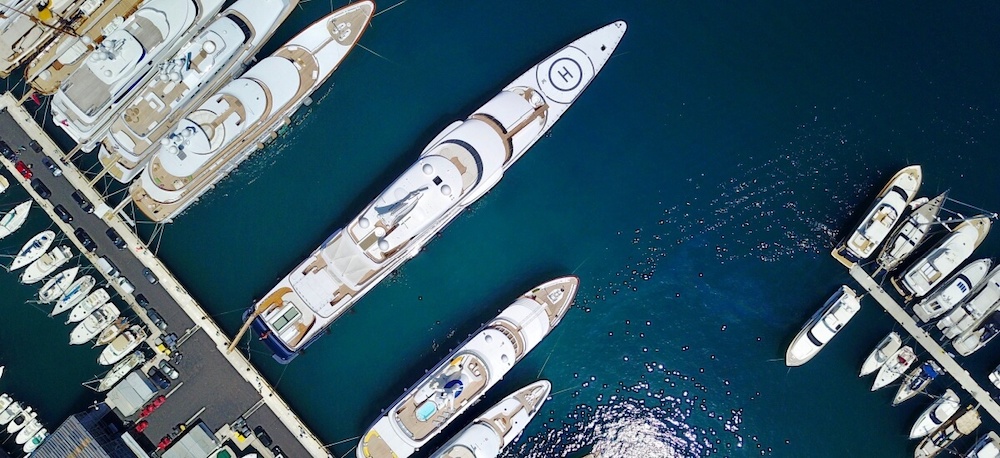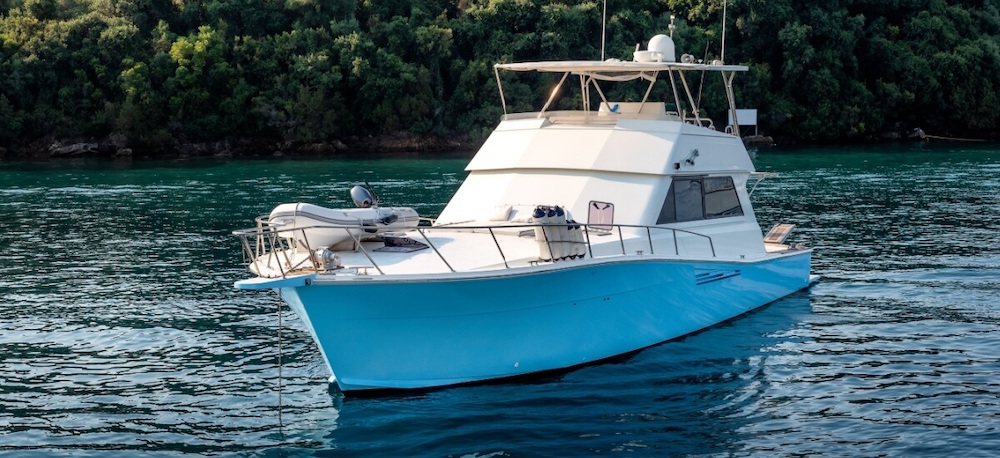Inheritance tax for UK non-residents: A guide
Read our helpful guide on inheritance tax for UK non-residents, including how IHT works, current tax rates and whether non-residents have to pay it.

Are you thinking about buying a yacht in the UK? Owning your very own yacht can be a rewarding experience whether you’re interested in fishing, sailing or just getting a nice tan while out at sea with friends and family.
Buying a yacht is usually a big financial decision. So take your time, weigh your options, and get clear on what you’re looking for.
Our handy guide is a great starting point. We look at how to choose the right yacht, the cost of different yachts, and how to go about buying one.
There isn’t an exact definition for the word ‘yacht’. Generally, a vessel is considered to be a yacht when it’s used only for recreational or pleasure purposes.
Yachts are also typically big enough (around 40–70ft) to have sleeping quarters, a kitchen, and a bathroom. And, they are large enough to need either sails or a motor to move forward.¹ ²
Here’s a short step-by-step instruction on how to buy a yacht.³
If you’re buying a yacht from overseas, the international transfer costs and exchange rate mark-ups can make your purchase significantly pricier. This is where the money services provider Wise can help.
Open a Wise account and you can securely send and spend money in 40+ currencies, converting your pounds using the fair mid-market exchange rate without a mark-up and only adding a small, transparent currency conversion fee. It’s not a bank account but offers many similar features.
Considering the hefty price tag on some of the yachts, using Wise could save you a bundle, especially on large amount transfers.
Learn more about the Wise account 💰
Flags are used to communicate different things to other boats. It can be important to use the right flags in the right positions to avoid misunderstanding and even fines, especially when travelling.
In the UK it is mandatory by law to fly an Ensign – a maritime flag that is used as the national identification of a ship. This will be the largest flag on your yacht and you’ll most likely be flying the Red Ensign.
Special or privileged Ensigns (White Ensign, Blue Ensign, and Light Blue Ensign) can be flown only with special permission.
If you’re part of an organisation like a sailing club, you can fly a burgee on your yacht that shows the club’s emblem or logo.
You can also fly a house flag, which is a smaller flag, that also shows organisation membership.
When you enter the waters of a foreign country, you can fly a courtesy flag. This flag says that the yacht respects the local laws and requirements.
Another flag that’s relevant for entering foreign waters is the Q flag. The ‘Q’ stands for quarantine, meaning that you’ve not yet checked your yacht in with local authorities.
Good to know: land flags or national flags should not be flown at sea. Because they resemble some signal flags they can cause confusion at sea.
Take a look at the Royal Yachting Association's page on flag etiquette to learn more about the sizes of flags and where you need to position them.

Choosing the right yacht can take a bit of time. There’s a plethora of different yachts available, but with the help of our guide and by doing your own research, you’ll be able to find the best yacht for you.
Let’s walk through a few key considerations you’d want to know before deciding on a yacht you want.
The three basic types of yachts are: sailing yachts, motor yachts, and gulet yachts.² A gulet yacht is a hybrid version, that has both sails and motors. From here we can break down the types further.
Sports yachts are yachts that are used mainly for water sports, fishing, or cruising. They can be recognised by their sleek designs and they can cruise at faster speeds because of their powerful motors.
Open yachts and different kinds of cruisers are otherwise uncategorised types of standard yachts that are used for entertaining and cruising.
Catamaran yachts have two hulls, making for a smooth ride with more stability. They are also well suited for use in shallow waters.
Luxury yachts have high-end finishes and technology as well as other premium features.
Superyachts or mega yachts are luxury yachts that are the largest and most expensive yachts available, measuring above 78 feet in length. These opulent yachts are usually managed by a professional crew.
There are many more types of yachts in these categories, which we won’t cover here. Once you narrow down your options, you’ll be able to go into further detail with the help of a good broker and online resources.
Moving on, here are some of the important things you need to consider when choosing a yacht. Take some time to consider what you’re willing to compromise on and what you’re not willing to negotiate on. If you’re going to be taking family with you, also ask for their wishes.

There are many different yachts available for all budgets. Some brands will cost you a lot more, while others give you more or less the same experience at a lower price point.
Besides the cost of the boat, also consider the maintenance budget. Putting up a yacht will mean yearly recurring expenses.
Think about when you will actually want to start sailing. Perhaps you’re planning on saving up to buy a more expensive yacht in the future. But maybe a smaller or cheaper yacht will give you the same sense of joy sooner.
Choose the size according to how many people you want your yacht to sleep. If you’re planning to only rarely host more people, consider chartering a yacht for those occasions. This way you can optimise your expenses and get the type of yacht you really need.
Depending on where you’ll be keeping your yacht, check to see if there are any size restrictions.
Choose the right yacht depending on the locations you’ll be sailing. Do your research online or talk to more experienced people, if you’re not sure.
Modern yachts are technologically more advanced with better equipment, making it a lot easier to handle even larger yachts.

As we already saw, there are many many different types of yachts you can buy. The cost of a yacht can vary from a few thousand pounds to millions!
The different factors that will affect the price of the yacht are the age and size, the model, and the brand. Premium brands will cost more, and you might get a relatively similar yacht for a lower price from a less prestigious maker. You’ll still want to do your homework beforehand to make sure you are getting a good-quality yacht.
Don’t be afraid to ask for advice from a good broker – they will have a lot of experience and can help you find the right yacht.
Keep in mind that you can get a decent used yacht for a much lower price.
And remember to check out the Wise account to potentially lower your costs when buying a yacht from abroad and sending money internationally.
Wise doesn’t have any hidden costs, your pounds are converted using the fair mid-market exchange rate, and you can always see the small currency conversion fee upfront.
Wise also offer dedicated support for large amount transfers to ensure your transactions go smoothly and securely.
In general small sailing yachts can cost around £10,000. Yachts that are a bit larger (25ft–30ft) usually cost from £25,000–£50,000. The biggest sailing yachts cost around £100,000.⁴
Smaller motor yachts will start from about £50,000 and larger motor yachts cost hundreds of thousands.⁵
The average luxury yacht in 2023 cost £532,000, with prices ranging from £250,000 to £12.5 million.⁶
The maintenance costs for your yacht will be around 5-10% of the yacht’s value annually, so make sure you budget accordingly. Maintenance costs include things like repairs, equipment, insurance, and mooring.
The amount of people you need varies from just a couple to dozens for large superyachts.
Here’s what you can expect for crew sizes:
| Yacht size | Crew members |
|---|---|
| Smaller superyachts (80-100ft) | 2-8 crew members |
| Medium-sized yachts (100-200ft) | 8-20 crew members |
| Large superyachts (over 200ft) | Over 20 crew members and superyachts exceeding 328ft can have 30–50+ crew members |
Here are some typical crew salaries:⁷
So, where to buy a yacht from? Luckily there are many dealers and brokers to choose from. Chances are that you can buy your yacht from a provider close to you, so just open up Google and see what your options are.
Here are some sellers we found online to get you started on your search:
You can also find different yacht sellers from other countries. However, always make sure they are legit and carefully add up all the costs before committing to the purchase.
Buying a yacht is a big decision, so take your time. Make sure you know what kind of yacht will give you the exact experiences you’re looking for. Once you’re clear on what you’re after, everything else will fall into place.
Sources used:
Sources last checked on date: 20-Mar-2024
*Please see terms of use and product availability for your region or visit Wise fees and pricing for the most up to date pricing and fee information.
This publication is provided for general information purposes and does not constitute legal, tax or other professional advice from Wise Payments Limited or its subsidiaries and its affiliates, and it is not intended as a substitute for obtaining advice from a financial advisor or any other professional.
We make no representations, warranties or guarantees, whether expressed or implied, that the content in the publication is accurate, complete or up to date.

Read our helpful guide on inheritance tax for UK non-residents, including how IHT works, current tax rates and whether non-residents have to pay it.

How much money can you receive as a gift from overseas in the UK? Read our guide and find out the latest rules.

Find out everything about retiring in the UK, including visa options, money requirements and healthcare.

Learn how to pay bills in Italy, using different methods like post offices, banks and online platforms.

Learn how to pay a bill in euros from the UK with Wise at a mid-market rate and save on unnecessary fees and foreign exchange conversions.

Wondering how to pay a bill in France from the UK? Discover secure methods like bank transfers and online tools to manage payments with ease.